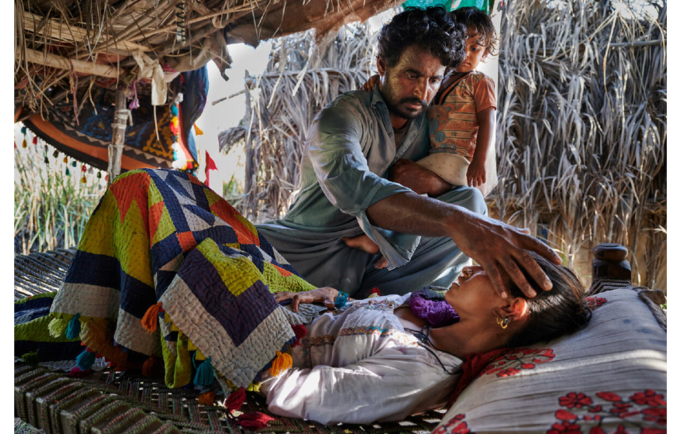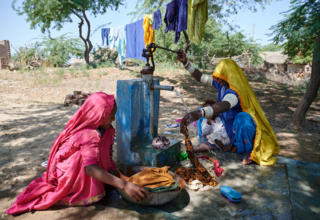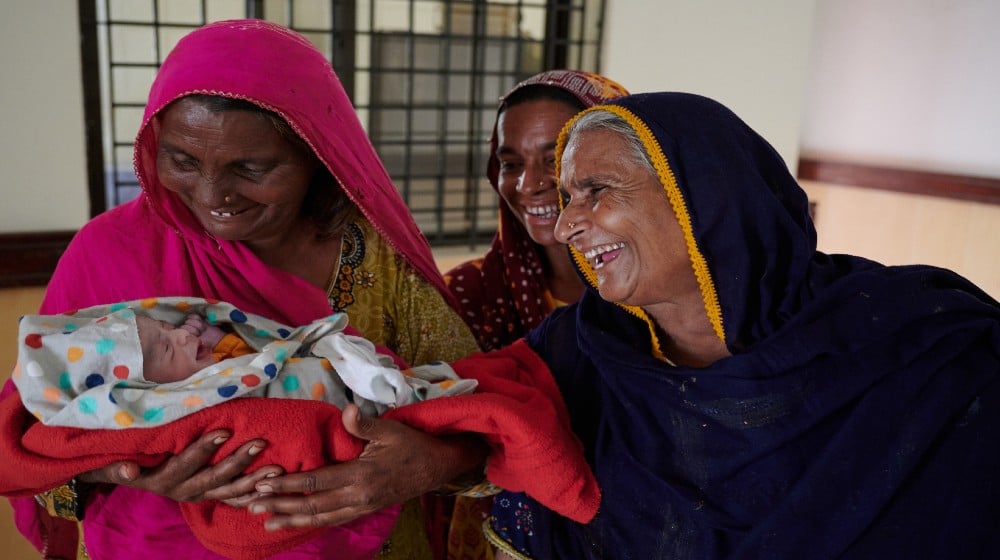ISLAMABAD, August 30, 2023 – A year after Pakistan faced the unprecedented devastation caused by Monsoon floods followed by a declaration of national state of emergency, the dire situation for women and girls in flood-affected areas persists. 6.18 million women and girls need assistance. Reproductive health care and gender-based violence prevention and response services are still urgently needed to address the ongoing challenges faced by these vulnerable populations.
Dr. Luay Shabaneh, the United Nations Population Fund (UNFPA) Representative in Pakistan, emphasized the ongoing struggles of women and girls in the flood-affected regions: "the past year has been a harrowing ordeal for women and girls in these areas. They have endured profound losses, including their homes, and have had difficulties in accessing health care and protection services.”
The devastation last year extended to critical infrastructure, including the destruction of 2,000 health facilities. The catastrophic floods inundated a third of the country’s territory, impacting a staggering 33 million people, including an estimated 8.2 million women of reproductive age. With the onset of monsoon rains now, the looming threat of another catastrophe adds to the challenges already being faced by women and girls.
While efforts continue to help the affected build resilience, some areas have now been affected by recent flash flooding, putting more Pakistani women and girls at risk of vulnerability.
Over the past year, UNFPA has been actively engaged in efforts to address the pressing needs of women, girls, and communities impacted by the floods, providing crucial reproductive health services to ensure safe pregnancies and childbirth, while also delivering essential support to survivors of gender-based violence. Over 1,029,487 people have been reached with sexual and reproductive health services namely 15,428 safe deliveries through skilled birth attendants, 650 women received post-abortion care, and 50,000 individuals were provided with modern contraceptive methods of their choice.
Additionally, 505,960 individuals, including adolescent girls and women affected by floods, accessed various GBV services and information and more than 50,000 women's dignity kits were distributed at women and girls-friendly spaces established in the affected areas. It is important to note that over 90 percent of the individuals who accessed the services are women and adolescent girls. Furthermore, approximately 500 healthcare providers and GBV case workers and responders have been trained on GBV and SRH in emergencies. The training ensured the provision of essential services in humanitarian settings, guaranteeing a minimum level of care during times of crisis.
As recovery efforts continue, UNFPA calls for sustained international support and collaboration to alleviate the ongoing challenges faced by the flood-affected regions of Pakistan. The UN agency underscores the need for comprehensive and integrated approaches that address both immediate needs and long-term resilience against the impacts of climate change. UNFPA, under the 2022 Flood Response could reach 15,35,447 SRH and GBV services.
“We remain committed to our mission of safeguarding the rights and well-being of women and girls, particularly in times of crisis. We are appealing for more financial support in building the resilience of the women and girls affected by the floods last year and in responding to this year’s devastation,” said Dr. Shabaneh.
#####
UNFPA Pakistan media contacts:
Pilirani Semu-Banda, International Communications Specialist, semu-banda@unfpa.org; +923028565840
Mariyam Nawaz, Communications Analyst, mnawaz@unfpa.org; +923001275276



